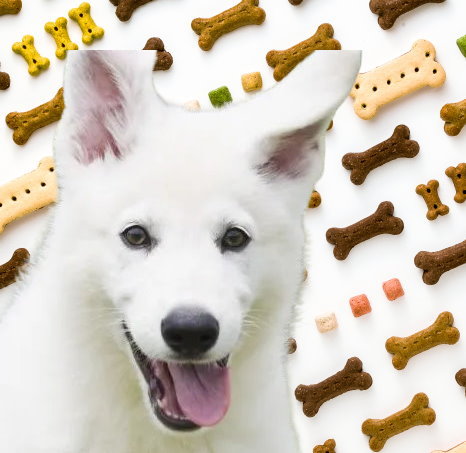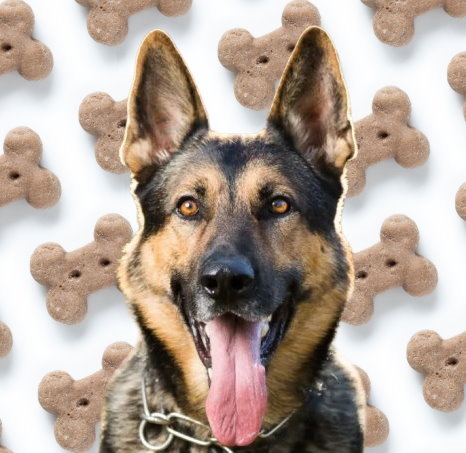Welcome to Dog Training Newbies !
Welcome to Dog Training Newbies !

Separation anxiety is a common and challenging issue faced by many German Shepherd owners. Known for their loyalty, intelligence, and strong bond with their families, German Shepherds are particularly prone to developing separation anxiety when left alone for extended periods. This condition can manifest in various ways, from destructive behavior and excessive barking to more subtle signs of distress, such as pacing or drooling. Understanding the causes of separation anxiety in German Shepherds and implementing effective solutions can help alleviate your dog's stress and improve their overall well-being.
UNDERSTANDING SEPARATION ANXIETY IN GERMAN SHEPHERDS
Separation anxiety is a condition in which a dog becomes excessively anxious or stressed when separated from their owner or family members. While all dogs are social animals, German Shepherds are especially attached to their owners due to their natural protective instincts and strong loyalty. This close bond, while beneficial in many ways, can make German Shepherds more vulnerable to anxiety when left alone.
Several factors can contribute to the development of separation anxiety in German Shepherds. One of the most common causes is a sudden change in the dog's routine or environment. For example, if your dog is used to having you around all day and suddenly experiences prolonged periods of isolation due to a new job or lifestyle change, they may develop anxiety as they struggle to adjust.
Another contributing factor is a lack of mental and physical stimulation. German Shepherds are a highly active and intelligent breed that requires regular exercise and mental engagement to stay happy and healthy. Without sufficient outlets for their energy, they can become bored, frustrated, and more prone to anxiety. This can be exacerbated by long periods of inactivity or isolation, leading to destructive behaviors as a way to cope with their stress.
In some cases, separation anxiety can also be triggered by past experiences, such as being rehomed or experiencing a traumatic event. Dogs who have been abandoned or mistreated in the past may develop a heightened fear of being left alone, making them more susceptible to anxiety when separated from their current owners.
RECOGNIZING THE SIGNS OF SEPARATION ANXIETY
Identifying separation anxiety in German Shepherds can be challenging, as the symptoms can vary widely from dog to dog. However, some common signs to look out for include:
Destructive Behavior: Chewing furniture, digging, and tearing up household items are common ways that anxious dogs may try to cope with their stress.
Excessive Barking or Howling: Vocalizing excessively, particularly when you are not at home, can be a sign of distress.
Pacing or Restlessness: Dogs with separation anxiety may pace back and forth, often near doors or windows, as they anxiously await your return.
Drooling or Panting: Physical signs of anxiety, such as drooling, panting, or trembling, can indicate that your dog is feeling overwhelmed.
Attempts to Escape: In severe cases, dogs may try to escape from the house or crate, potentially causing injury to themselves in the process.
Toileting Accidents: Some dogs may lose control of their bladder or bowels when anxious, leading to accidents indoors.
If you notice any of these signs in your German Shepherd, it's essential to take action to address their anxiety and prevent the behavior from escalating.
SOLUTIONS FOR MANAGING SEPARATION ANXIETY
Managing separation anxiety in German Shepherds requires a combination of training, environmental enrichment, and, in some cases, professional intervention. The following strategies can help reduce your dog's anxiety and improve their ability to cope with being alone:
GRADUAL DESENSITIZATION
One of the most effective ways to reduce separation anxiety is through gradual desensitization. This involves slowly acclimating your dog to being alone by starting with short periods of separation and gradually increasing the duration over time. Begin by leaving your dog alone for just a few minutes, and then gradually extend the time as they become more comfortable. Always reward your dog with treats and praise when you return to reinforce positive associations with being alone.
CREATE A SAFE AND COMFORTABLE SPACE
Providing your German Shepherd with a designated safe space, such as a crate or a specific room, can help reduce their anxiety when you're away. Make this space inviting by including their favorite toys, bedding, and even clothing with your scent. Some dogs feel more secure in a smaller, enclosed area, which can help them feel less anxious.
EXERCISE AND MENTAL STIMULATION
Ensuring that your German Shepherd receives plenty of physical exercise and mental stimulation is crucial for reducing anxiety. Regular walks, playtime, and interactive toys can help tire out your dog and reduce their energy levels, making them more likely to relax when you're not at home. Puzzle toys, treat-dispensing toys, and training sessions are also excellent ways to keep your dog's mind engaged.


USE CALMING AIDS
Calming aids, such as pheromone diffusers, anxiety wraps, or natural supplements, can help alleviate your dog's stress. These products are designed to create a calming environment and can be particularly helpful during the initial stages of desensitization training.
PROFESSIONAL TRAINING AND SUPPORT
If your German Shepherd's separation anxiety is severe or doesn't improve with basic interventions, it may be necessary to seek professional help. A certified dog trainer or behaviorist can work with you to develop a customized training plan that addresses your dog's specific needs. In some cases, medication prescribed by a veterinarian may be necessary to help manage your dog's anxiety.
BUILDING CONFIDENCE AND INDEPENDENCE
In addition to managing the symptoms of separation anxiety, it's essential to work on building your dog's confidence and independence. Encourage your German Shepherd to engage in activities on their own, such as playing with toys or exploring the backyard. Providing positive reinforcement when they engage in independent behavior can help them feel more secure and less reliant on your constant presence.
It's also important to avoid making a big fuss when you leave or return home. Calm, low-key departures and arrivals can help reduce the anticipation and excitement that often triggers anxiety.
Separation anxiety in German Shepherds can be a challenging issue, but with patience, consistency, and the right approach, it is possible to help your dog overcome their fears and feel more comfortable when left alone. By understanding the causes of their anxiety and implementing effective solutions, you can improve your dog's well-being and strengthen the bond you share. Remember, every dog is different, so it may take some time to find the right combination of strategies that work best for your German Shepherd. With dedication and love, you can help your loyal companion live a happier, more relaxed life.